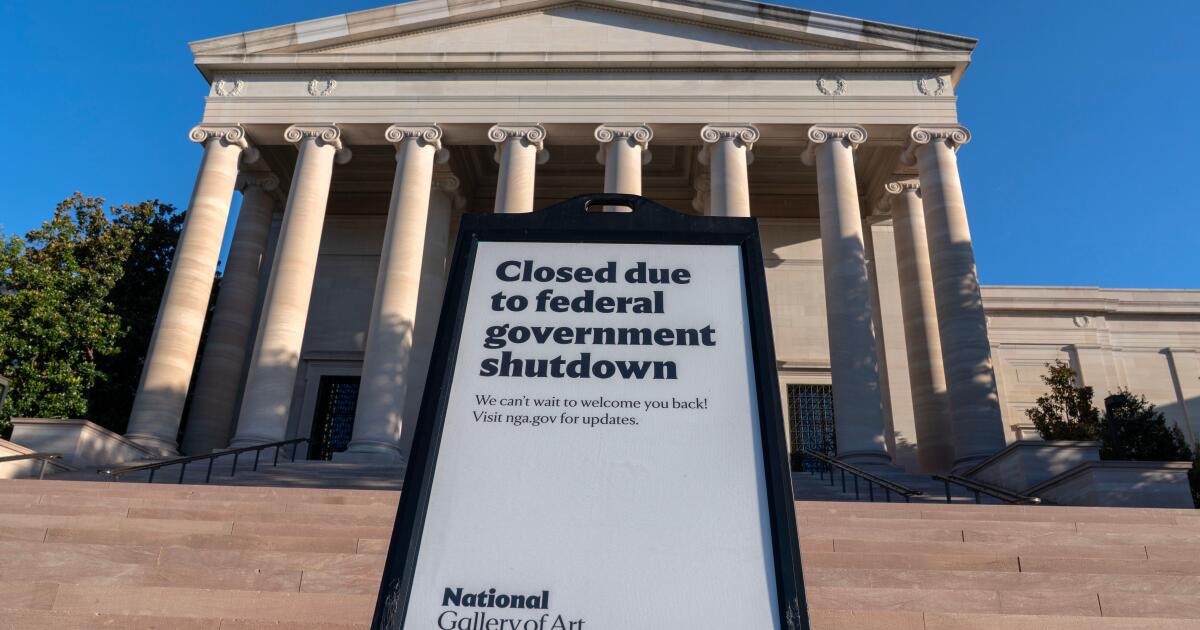Trump’s threats on salary arrears, a new blow for civil servants

WASHINGTON- Sidelined by politicians, targeted by deep state conspiracies, and ridiculed by the president, career civil servants have become accustomed to life in Washington in a constant state of aggression.
But President Trump’s latest threat, to withhold back pay from workers furloughed by the current government shutdown, adds new uncertainty to the beleaguered workforce.
Whether federal workers will ultimately receive retroactive paychecks after the government reopens, Trump told reporters Tuesday, “really depends on who you talk to.” The law requires federal employees to receive expected compensation in the event of a shutdown.
“Essentially, we’re going to take care of our people,” the president said, while adding, “There are some people who really don’t deserve to be taken care of, and we’ll take care of them in a different way.”
It’s another peril facing civil servants who Trump’s Office of Management and Budget director Russ Vought said could also be targets for mass layoffs if the shutdown continues.
The government has been shut down since Oct. 1, when Republican and Democratic lawmakers reached an impasse over whether to extend government funding at current levels or accommodate a significant increase in health care premiums facing millions of Americans early next year.
White House officials say that, on the one hand, Democrats are responsible for extending a lockdown that will leave the administration with no choice but to lay off agency employees working on “non-essential” projects. On the other hand, the president has framed the moment as an opportunity to eliminate Democrats in career positions across the federal system.
Legal scholars and public policy experts have roundly rejected Trump’s latest efforts — both to use the shutdown as a predicate for downsizing and to withhold back wages — as clearly illegal.
And Democrats in Congress, who continue to vote against reopening the government, are counting on them to be right, hoping the courts will reject the administration’s measures as they try to secure an extension of health care tax credits as part of the shutdown negotiations.
If the experts are wrong, thousands of civil servants could have to pay a heavy price.
“Senior leaders in the Trump administration promised to traumatize federal employees, and they certainly seem determined to keep that promise,” said Don Moynihan, a professor at the University of Michigan’s Ford School of Public Policy.
“Under a law that Trump himself signed, unemployed employees are entitled to back pay,” Moynihan said. “There’s not really any ambiguity about this, and the idea that only certain employees at agencies Trump likes are receiving back pay is an illegal abuse of presidential power.”
A day after the shutdown began, Trump wrote on social media that he planned to meet with Vought, “of Project 2025 fame,” to discuss what he called the “unprecedented opportunity” to make “permanent” agency cuts during the current funding period.
A lawsuit filed in California against Vought and the OMB, by a coalition of unions representing more than 2 million federal workers, challenges the premise of this claim, arguing that the government is “departing from historical practices and violating applicable laws” by using government employees “as a pawn in Congressional deliberations.” But it’s unclear whether courts can or will stop those efforts.
Sen. John Thune, the majority leader and Republican of South Dakota, said last week that Democrats should have been aware of the risk they were taking by “shutting down the government and handing the keys to Russ Vought.”
“We don’t control what he’s going to do,” he told Politico.
The White House has sent mixed messages about its willingness to negotiate with Democrats since the start of confinement. Hours earlier this week, the president’s press secretary, Karoline Leavitt, told reporters there was nothing to negotiate, before Trump said dialogue had been opened with Democratic leaders on a possible health care deal.
Donald Kettl, professor emeritus and former dean of the School of Public Policy at the University of Maryland, has taught and trained future public servants for 45 years.
“What is happening is deeply discouraging for young students seeking careers in the federal public service,” he said. “Many students frequent state and local governments, nonprofits, and think tanks, but increasingly do not see the federal government as a place where they can make a difference or build a career.
“We all depend on government, and government depends on a pipeline of skilled workers,” Kettl added. “The administration’s efforts have blown the pipeline, and the costs will continue for years, if not decades, to come.”




